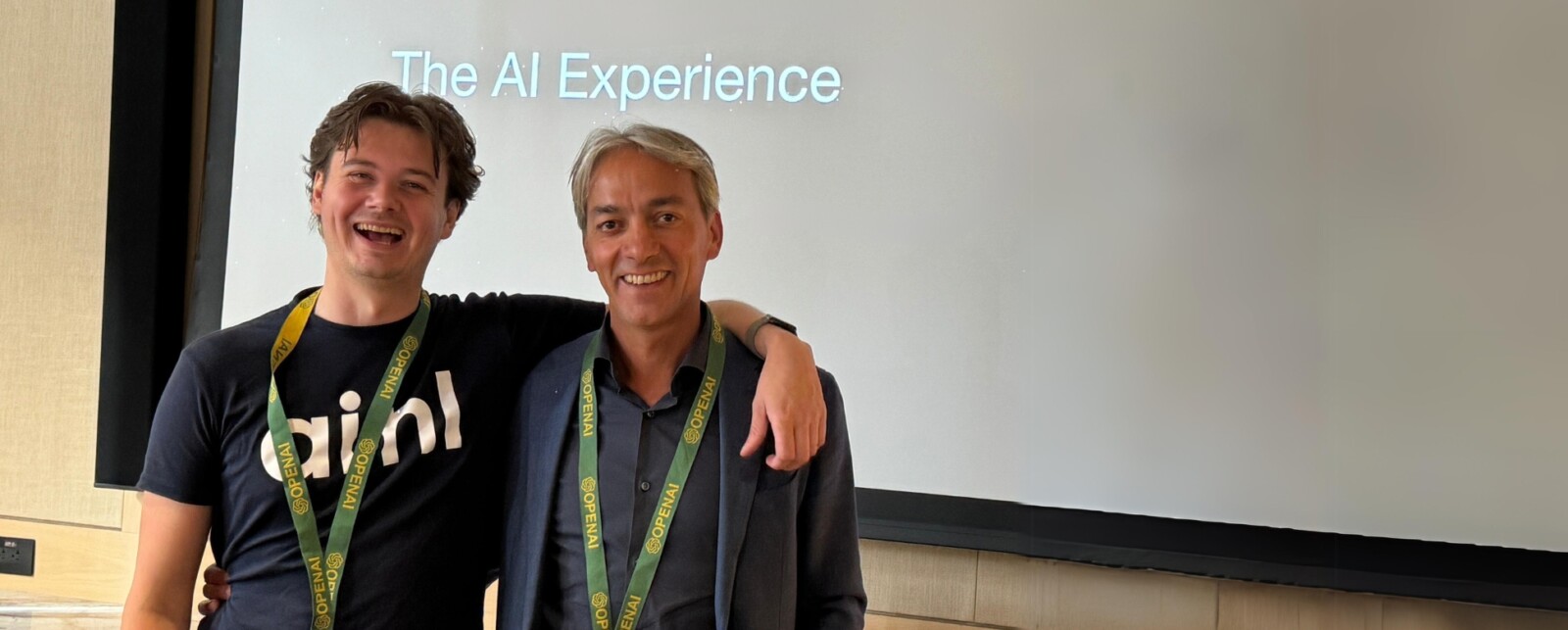“Scaling-up is about making tough decisions and killing your darlings.
The story of Hubert Deitmers, founder of Endeit Capital: saying ‘no’ and maintaining focus

Hubert Deitmers, a prominent venture capital investor who specializes in technology companies, began his career at Atlas Venture in 1987. The experiences he acquired there laid the foundation for his future successes in the world of venture capital. As founder and managing partner of Endeit Capital, he wants to share an important lesson: “The success of scale-ups often boils down to being able to say ‘no’.”
The starting point of the focus
Hubert began his investment career at Atlas Venture. Although there was no clear distinction between Private Equity and Venture Capital at the time, he describes Atlas as a VC that made a name for itself as a pioneer in the sector. “As one of the first Dutch VCs, we invested in all kinds of things: from watches to fences and from hotels to software at various stages of a company’s development,” Hubert says. Eventually, Atlas decided to narrow its focus to investments in the IT and Biotech sectors. “That meant we had to turn down other opportunities,” Hubert continues. It proved to be a successful strategy. Atlas soon grew from a relatively small Dutch player to a major international party with a multi-billion investment portfolio.
When Hubert got involved with Endemol shortly after the company’s merger, it was engaged in various entertainment activities. These included the production of both scripted and unscripted television programs, distributing American films in the EMEA region, organizing live entertainment such as stage productions and shows on ice. Hubert explains, “Endemol was a pioneer in the sector, but we, as the Board of Directors, realized that it was not efficient to keep doing everything.” By shifting the company’s focus exclusively to the development and production of TV programs, Endemol was able to become the largest independent television producer in the world.
Consistent choices
Somewhere at the beginning of this century, founder Hans Veldhuizen’s company Albumprinter faced an important decision regarding the use of photo technology. The options were to diversify and become the Netherlands’ largest producer of printed products, including T-shirts, lampshades, wallpaper, and coffee mugs, or to specialize in only one product. The Supervisory Board, on which Hubert held one of three seats, opted to specialize in photo albums under the brand name of Albelli. Hubert explains: “This specific focus made it clear what the company’s time and money had to be invested in. Albelli eventually became the second-largest producer of photo albums in Europe.”
Picturae
“Another example where I was part of the Supervisory Board and where this scale-up strategy was used is Picturae,” Hubert says. What started out as a hobby of founder Onno Zaman eventually grew into a company that could digitalize any cultural heritage, from small projects to major assignments. The company initially served both B2C and B2B clients, but later opted to focus on specific sectors of the B2B market. The decision to stop taking orders below €5,000 was a major step in the right direction. Hubert explains, “It sounds simple enough, but the CEO really struggled to make that call at the time.” He continues: “After that decision, the company really took off. Before long, they stopped taking orders below €20,000. Picturae eventually became a household name, particularly among major cultural institutions such as the Smithsonian in the United States.”
Thinking like a scale-up
Hubert emphasizes the importance of choosing and abandoning activities that were useful when your company was a start-up, but which are now inhibiting your growth as a scale-up. “It is about making difficult decisions and killing your darlings,” he says. He recommends concretizing these choices in the form of a concise mission statement to ensure that everyone – employees, clients, suppliers and shareholders – clearly understands the company’s focus. This will simplify the decision-making process whenever new opportunities present themselves.
The importance of saying ‘no’ in the tech sector
Although Hubert’s strategy can be applied anywhere, he says it is crucial in the technology sector. “You encounter new ideas and possibilities on a daily basis. It is important to distinguish between opportunities that are actually promising and those that will only distract you,” he explains. His advice to scale-up entrepreneurs is to keep their clearly defined goals in mind at all times. This strategy is not only essential for a company’s growth, but also for establishing a solid foundation for future successes – particularly in a constantly evolving market. Hubert’s insights underscore the importance of determination and clarity in this dynamic environment.

